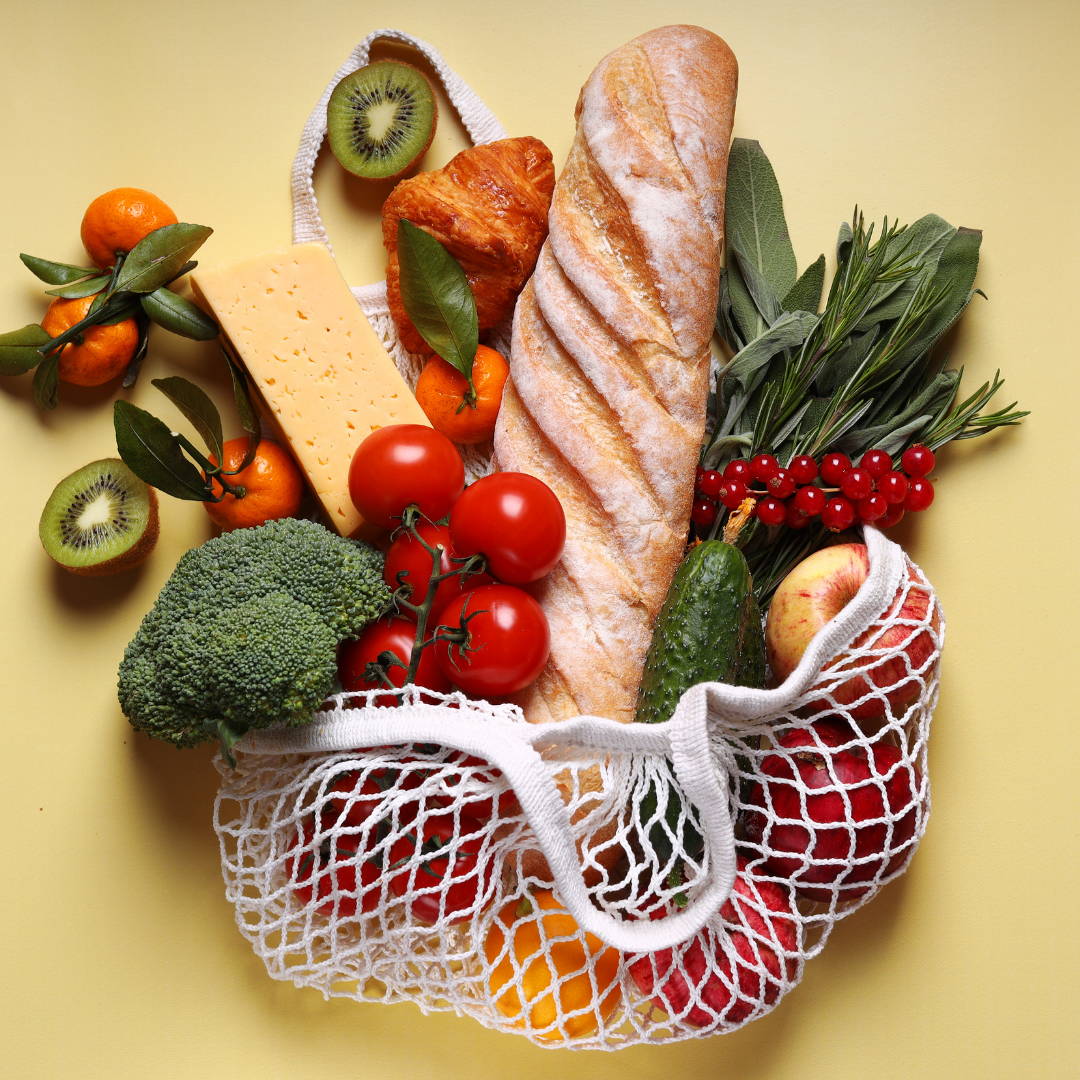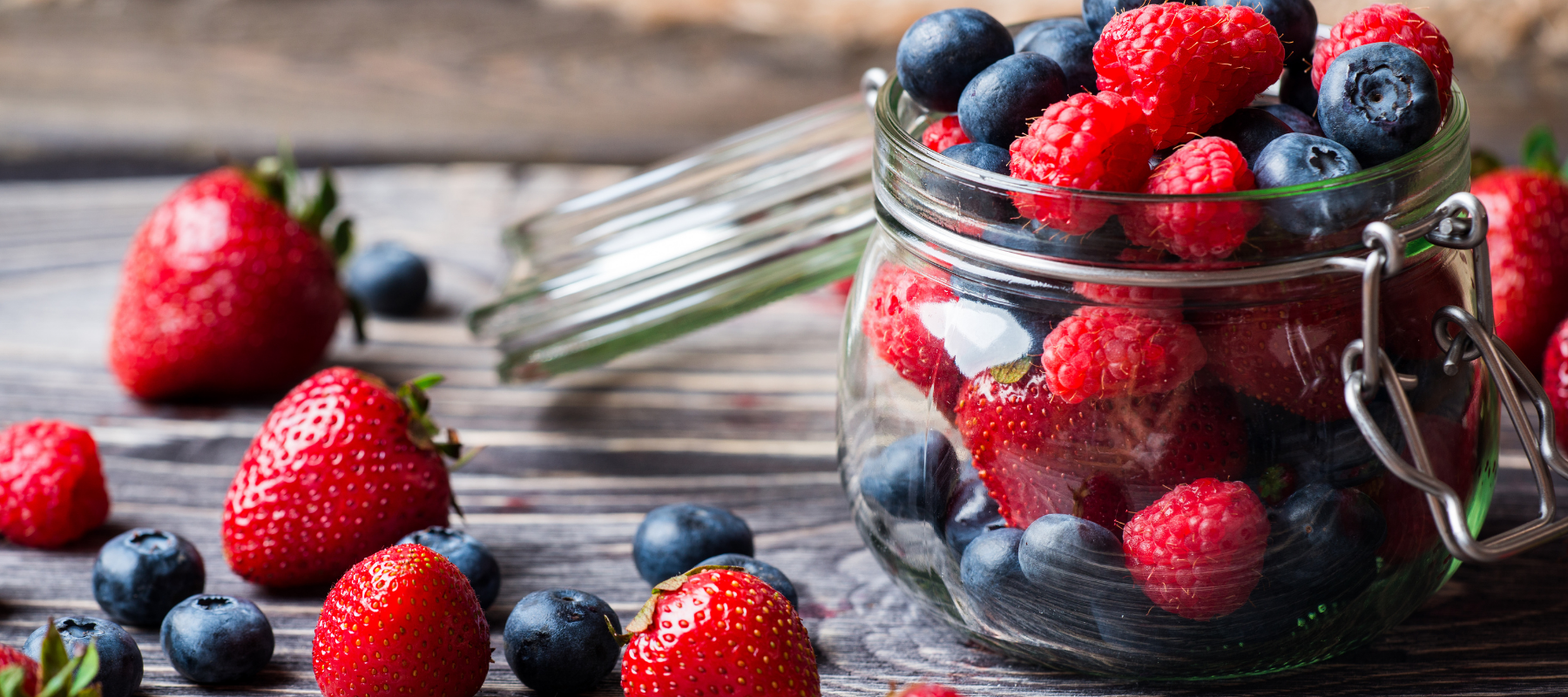
Looking to eliminate your food waste? You're in the correct place!
In the UK, we throw away approximately 6.6 million tonnes of household food waste a year. Almost three quarters of this is food we could have eaten. On average it is estimated that an individual household wastes more than 30% of the food it obtains. A statistic with both damaging financial and environmental consequences.

There are a number of ways to help change this dynamic. Storing foods properly to avoid spoilage can eliminate some of this waste, especially when paired with better shopping and meal-planning habits.
There are 3 main things to take into consideration when storing your fresh produce: ethylene, airflow, and temperature.
Ethylene gas is naturally released by some fruits and quickens the ripening and decay of other nearby produce. Knowing this is essential to running a waste-free kitchen.
It is also key to know the different temperature regions of your fridge; Generally the top shelves and the doors of fridge will be warmer, whereas the lower shelves and back of the fridge will be cooler. The drawers in your fridge are cool and retain humidity.
Here are some of our top tips for how to store your household fruits and vegetables and keep them fresher for longer.
Apples
Apples are a high ethylene-producing fruit so it is recommended to keep them away from other produce to stop the apples decaying the other produce items. They are best kept in your fridge, you could always individually wrap them in beeswax wraps or keep them bundled together in a bag.

Bananas
Bananas also release high level of ethylene, so best to keep them stored alone on your kitchen side or counter, separating the bananas from the bunch will also help to stop them spoiling each other if one starts to decay. Why not buy a bunch that’s still a little green to ensure that you’re not stuck with a bunch of overripe fruit too quickly. Only once ripe, bananas can be moved to the fridge for a couple of days until you’re ready to eat them.
Peppers
Keeping peppers in the fridge will stop them from getting soft and wrinkly. They could last you from up to 1-2 weeks if kept away from high ethylene producing fruits. Peppers can last less time if they get too moist so be sure to dry them before placing in fridge and don't wash until you plan to use them.
Berries
Your berries such as Strawberries, Blackberries, Raspberries and Blueberries should be stored in a container (with a small amount of airflow) in the fridge. They can also be lined with towels to prevent the build up of moisture. The berries will spoil too quickly if moist, so you shouldn't wash them before storing them. However with Strawberries if rinsed in a vinegar-water solution and dried thoroughly before chilling, they can last much longer.

Broccoli
Although broccoli doesn't tend to last too long, to keep it fresher, store in the cool drawer of your fridge and wrapped in a damp towel. You shouldn't ever leave the florets in a silicone bag or wash them before storing as they could get mouldy.
Carrots and Celery
We recommend to keep your cut up carrots and celery submerged in a jar of water, they could last an extra 2 weeks to a month. Whole carrots can last on their own in the fridge for a while, however celery is better wrapped in beeswax wraps and stored in the fridge. Don't keep them in plastic wrap as that will only speed up the process of decay.

Citrus produce
It is advised to keep lemons, limes, oranges, tangerines, grapefruits, and other citrus fruits at a room temperature until they hit peak ripeness, at this point you can place them in the fridge. Alternatively, right after purchasing them you can store them in the fridge until you are ready to eat them, then move them to the kitchen side or counter. Lemon and limes are sensitive to ethylene producing fruits, so best to keep them separate.
Cucumbers
Did you know that the flavours of a cucumber are affected by cold temperatures? Because of this it is best that they are left on the side/counter. However if your looking to extend their life by storing in the fridge, you should wrap them in a towel to keep it dry and then place in a reusable, cloth produce bag for ventilation. Do not wash before storing and keep them on the higher shelves towards the front of the fridge to stop them getting too cold.
Grapes
Store your grapes in a bowl, colander or a container with holes to help with airflow. Keep them in the cooler parts of the fridge to stop them from getting wrinkly and soft too quick. Whilst it can be convenient for snacking don't rinse before storing; keeping them dry can make them last up to a week.

Herbs
For soft-stemmed herbs like mint, basil, parsley, dill, tarragon, and cilantro, place the stems in a jar with a few inches of water and put in the fridge. Hard-stemmed herbs such as rosemary, sage, oregano, thyme, chives, and others should be wrapped in a damp towel and stored in a sealed container in the crisper drawer.
Mushrooms
Mushrooms have a high water content meaning they tend to get all slimy when exposed to too much moisture. Store them in the fridge in a paper bag; adding a towel can help to catch some of the extra moisture if you know you won't get to them in a few days. It is best to eat mushrooms within a week or up to 10 days.
Onions and Garlic
You can store your onions and garlic together but kept away from any moisture and in a low-humidity environment. Both like good air circulation, so a basket or mesh or paper bag is preferable for storage. Onions in a cool dark place such as a closet or basement storage room can last for months. Garlic can be left in a breathable container on the kitchen side. Cut up onions should be wrapped in beeswax wrap and stored in the fridge.

Potatoes
Potatoes should be stored similarly to onions but these two items should be kept away from each other; gases emitted by onions can cause sprouting in potatoes. Keep potatoes in a cool dark place; Don't put them in the fridge as this can cause some of the starches to change to sugars. Leaving the potatoes in plastic bags also promotes spoilage, so keep them in a basket, produce bag or other open container.
Salad Greens
To stop salad greens from going soggy, wrap in a light, reusable dish towel or napkin to soak up water. To prevent excess moisture, don’t wash the greens until you’re ready to use them. To revive limp greens, submerge them in a bowl of very cold water before eating.
Tomatoes
Keep tomatoes out of the fridge! You should store you fresh tomatoes upside down in open, flat container at room temperature and out of direct sunlight. However if very ripe, move into the fridge until ready to use. Tomatoes give off ethylene gas, so keep them away from other fruits and vegetables.





